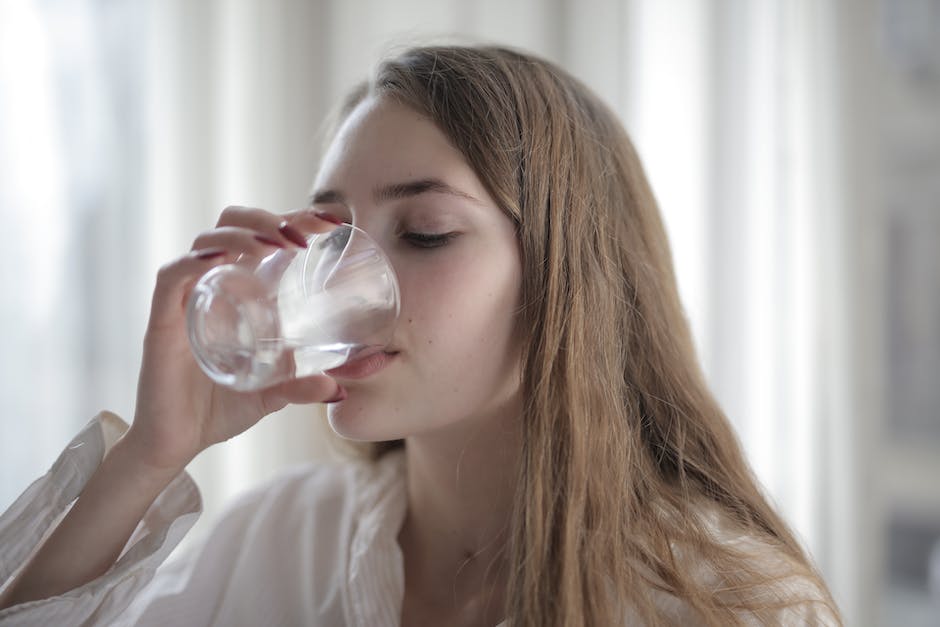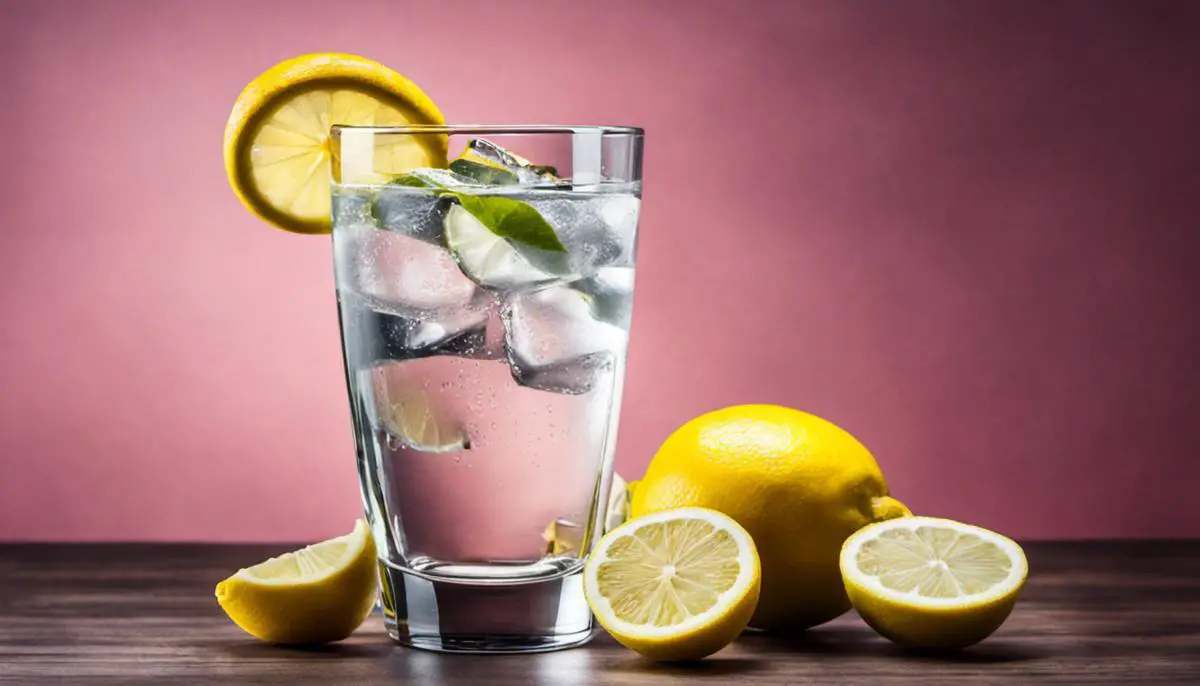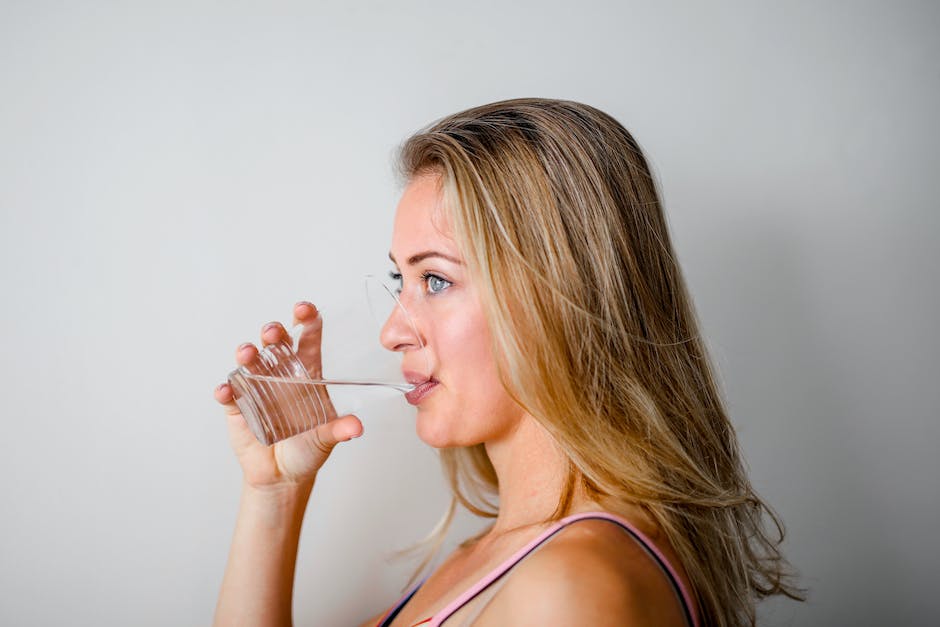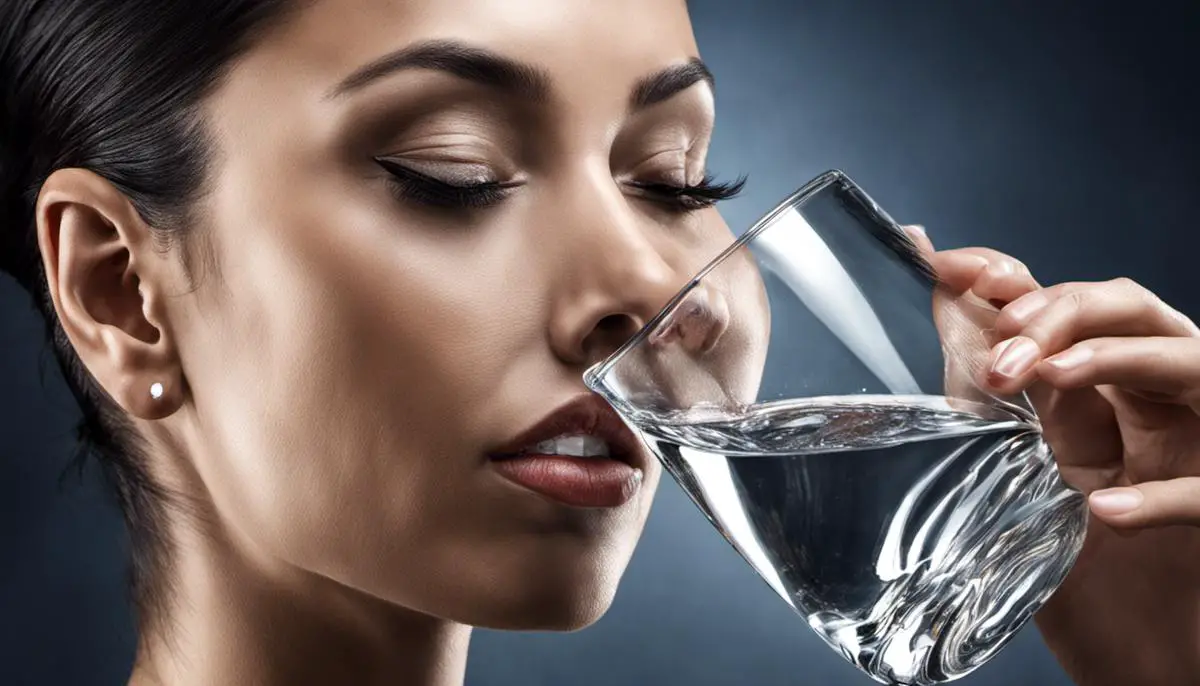When we think about lifestyle changes to improve our health, we often gravitate towards changes in diet or exercise habits. While these are indeed essential, an often overlooked aspect is hydration. As humans, our bodies are composed of nearly 60% water, underscoring the vital role water plays in our health and functioning. In this discussion, we’ll delve into the importance of staying adequately hydrated, the health benefits it brings along, and the potential risks posed by dehydration. Also, we will explore the significance of hydration during exercise and end with some practical strategies to improve hydration habits. Prepare to quench your thirst for knowledge as we navigate the waters of proper hydration.
Importance of Hydration
Understanding Hydration: The Fundamental Life Sustainer
Around 60% of the human body is made up of water. This vital fluid plays crucial roles in different bodily functions, ranging from brain functioning to cell division. Serving as a building block, water helps form the structure of cells, regulates body temperature, and carries vital nutrients and oxygen to cells. It also aids in flushing out waste products from body cells, lubricates joints, backs digestion, and maintains optimum skin health.
Water also plays a vital part in the production of hormones and neurotransmitters. Moreover, proper hydration improves cognitive functions such as clarity, focus, and alertness.
To maintain the body’s overall health, it’s essential to replace the water our body loses daily through functions such as sweating, urinating, and even breathing.
Recommended Water Intake and Influencing Factors
Although it’s widely suggested to drink ‘eight glasses of water a day’, the Institute of Medicine (IOM) has provided further guidance. The IOM suggests an adequate intake of approximately 3.7 liters (or about 13 cups) for men and 2.7 liters (or about 9 cups) for women daily. However, the recommended intake can vary based on various factors including age, sex, weight, physical health, and activity level.
Physical exercise, for instance, requires higher water intake because of the additional loss of water through sweat. Similarly, weather can also influence water needs. Hot or humid weather can make you sweat and requires additional fluid intake.
Further, specific health states demand different fluid needs. Pregnant and breastfeeding women need more fluids to stay hydrated. Certain medical conditions such as diabetes or heart disease might also increase your water needs. On the flip side, conditions like kidney or liver disease may necessitate more controlled water intake.
Even though dehydration occurs when your body doesn’t have as much water as it needs to function properly, overhydration is equally harmful leading to an imbalance in the body’s electrolytes.
Therefore, meeting an individual’s hydration requirements is not one-size-fits-all, it can differ greatly depending on various factors. Recognizing these factors and being mindful of water intake can contribute greatly to overall health and wellness. It’s essential to ensure you meet your hydration needs to keep your body functioning at its best.
The Vital Role of Keeping Track of Your Hydration Levels
It is critical to monitor your hydration levels consistently to circumvent implications such as dehydration or overhydration. Symptoms including attention deficits, headaches, flaky skin, unusually colored urine, and feeling lethargic may signal that you are not sufficiently hydrated. Many healthcare professionals suggest that observing the color of your urine can serve as a practical indicator of your body’s hydration level. Straw-colored or pale urine usually indicates ideal hydration, whereas dark urine suggests that you could be dehydrated and, therefore, should consume more water.
It’s crucial to keep in mind that maintaining an appropriate level of hydration is integral to ensuring optimal health and enabling our bodily systems to function at their best.

Health Benefits of Proper Hydration
Comprehending the Concept and Significance of Hydration
Fundamentally, hydration pertains to providing your body with sufficient fluids to operate properly. Given that up to 60 percent of the human body comprises water, it serves as a biological catalyst for chemical reactions, the mechanism for nutrient transport, an agent for temperature control, and means for waste elimination. Therefore, consistent hydration is fundamental for maintaining your overall health and well-being.
Hydration and Cognitive Function
One of the key benefits of proper hydration revolves around improved cognitive function. Brain cells require a delicate balance of water and various electrolytes so as to operate efficiently. When the body is dehydrated, the brain cannot function at its optimum capacity, resulting in symptoms like confusion, poor concentration, and changes in mood. Research has shown that even minor dehydration can influence mood, energy levels, and the capability to think clearly.
Hydration and Skin Health
Hydration plays a crucial role in maintaining a healthy skin condition. This is primarily because skin comprises about 30% water, contributing to its plumpness, elasticity, and resilience. When not adequately hydrated, your skin can become dry, tight, and flaky. Additionally, hydration aids in the reduction of wrinkles, keeping the skin youthful and vibrant.
Hydration and Kidney Function
The kidneys are significant organs in the body responsible for filtering waste products and maintaining electrolyte balance. Adequate hydration is crucial to enable the kidneys to filter toxins out more efficiently and help prevent kidney stones. Dehydration, conversely, can negatively impact kidney function, leading to the build-up of waste products and, in severe cases, kidneys stones or other complications.
Hydration and Digestion Improvement
Water behaves as a solvent and is crucial for digestion. It aids in dissolving nutrients so that they can be absorbed by the digestive tract and utilized by the body. Furthermore, hydration is important for maintaining healthy gastrointestinal function. Adequate fluid intake can help in preventing constipation, promoting regular bowel movements, and supporting overall digestive health.
Hydration and Weight Management
Finally, hydration plays an important role in weight maintenance and management. Drinking sufficient water can help to control hunger, as the sensation of thirst can sometimes be confused with hunger. Water also aids in metabolism. Studies have indicated that drinking water can actually boost the body’s metabolic rate, aiding in weight loss and maintenance objectives.
Hydration and Physical Performance
Proper hydration is not only critical for cognitive and cellular function, but it’s also greatly influential for physical performance. Dehydration can lead to fatigue, reduced motivation, and make exercise feel much more challenging, physically and mentally. Adequate hydration can prevent this, maintaining normal body function, improving performance, and reducing the feelings of fatigue during exercise.
The significance of proper hydration extends far beyond quenching your thirst, it plays a pivotal role in maintaining multiple facets of your health. Everything from mental performance and cognitive abilities, digestion, skin conditions, and weight management, down to the functionality of your kidneys, all depend on sufficient hydration. Given the extensive and crucial role water plays in our bodily systems, there’s no denying the importance of maintaining hydration for holistic well-being.

Signs Of Dehydration
A Closer Look at Dehydration and How to Identify Its Symptoms
Dehydration sets in when your body’s fluid loss surpasses your fluid intake. This fluid imbalance, in turn, disturbs the harmony of vital minerals in your body like salts and sugars, subsequently hindering its optimal functionality. Some of the earliest indicators of dehydration are sensations of thirst, urine that is darker in color, and a decrease in the frequency of urination. Moreover, your urine’s color serves as an efficient method of estimation of your hydration levels – the clearer it is, the better your hydration status, and darker urine often suggests dehydration.
Additional evident symptoms of dehydration may manifest as fatigue, headaches, dry lips and mouth, dizziness, and confusion. Severe cases of dehydration can escalate to symptoms like rapid heartbeat, sunken eyes, dry skin that doesn’t return to normalcy after being pinched, low blood pressure, fainting, and even delirium or unconsciousness in extreme situations. The severity of these symptoms underlines the necessity to address any signs of dehydration promptly, as prolonged, severe dehydration can inflict permanent kidney damage, trigger seizures, and at times, can even be fatal.
Chronic Dehydration: An Underestimated Health Risk
Chronically insufficient hydration, where someone regularly does not drink enough water, presents risks to both physical and mental health. Physically, it can contribute to recurring instances of kidney stones, urinary tract infections, prolonged fatigue, and constipation. In the long term, it could potentially lead to kidney disease.
Mental function can also be significantly hindered by chronic dehydration. The brain’s function relies heavily on proper hydration. Dehydration can result in impaired memory, attention, and motor skills. This could affect performance in both adults at work and children in school. It might also lead to mood swings and reduced alertness, which could impact a person’s ability to perform daily tasks.
In addition to these risks, recent studies suggest that persistent dehydration could be linked with a higher risk of developing chronic diseases such as obesity, heart disease, and cancer. Over time, inadequate hydration may affect bodily functions like metabolism, leading to weight gain and obesity. It could also contribute to high blood pressure, increasing the risk of heart diseases.
Hydration: Not Just Water
Hydration isn’t just about drinking water. Electrolytes, minerals in your body that have an electric charge, are important for hydration too. They balance the amount of water in your body, balance your body’s pH level, move nutrients into your cells, and move waste out of your cells. When you sweat, along with water you lose electrolytes, mainly sodium and potassium. To stay hydrated, it’s not only important to replenish the water but also intake foods or drinks that contain these essential electrolytes.
The Importance of Adequate Hydration
The value of sufficient fluid intake, as recommended by the US National Academies of Sciences, Engineering, and Medicine, cannot be overstated. For men, the suggested daily fluid intake rounds off to roughly 3.7 liters (or 13 cups), and for women, about 2.7 liters (or 9 cups). These estimates account for all beverages and the water content in food.
Dehydration, a hidden health hazard, is often overlooked until acute symptoms surface. Being attuned to our body’s signals is fundamental, and developing routine hydration habits can fend off numerous potential health issues. The proper function of our body and brain relies heavily on appropriate hydration, making it pivotal in promoting good overall health and warding off chronic diseases.

Hydration and Exercise
Hydrating for Exercise: Boosting Athletic Performance
Maintaining proper hydration is crucial to optimal health, but this necessity becomes even more significant during physical activities or workouts. Regular water consumption helps control body temperature, stave off fatigue, and augment muscle function. As we exercise, our bodies lose both water and essential electrolytes through increased sweating, a process that can quickly spiral into dehydration if not properly countered with hydration.
Enhancing Performance Through Hydration
Performance can be dramatically impacted based on hydration status. A properly hydrated individual has a well-lubricated muscular and cardiovascular system that performs better during physical activity. Hydrating the body before, during, and after exercise equips the system to withstand strenuous workouts.
For instance, water aids in the digestion of food and the absorption of nutrients, providing the necessary energy for exercising. In addition, hydration aids in maintaining optimal body temperature during workouts by distributing heat evenly. This prevents the body from overheating, allowing for a safe and efficient workout.
Risks of Dehydration During Exercise
Failure to adequately hydrate can lead to dehydration, which impacts athletic performance and can pose serious health risks. Effects can vary based on the severity of the dehydration, ranging from mild symptoms such as dizziness and fatigue, to more severe consequences like heatstroke.
Dehydration can also lead to muscle cramps due to an imbalance in electrolytes which are essential for muscle contraction and relaxation. Reduced coordination, impaired judgement, and slower reaction times are also common symptoms of dehydration, increasing the risk of injuries during physical activities.
A startling statistic is that even a 2% decrease in body water can lead to a noticeable decrease in physical and mental performance, emphasizing the need for regular hydration during physical activities.
Hydration Strategies for Physical Activities
The basic strategy to avoid dehydration and its negative effects is maintaining an effective hydration schedule which includes hydrating before, during, and after exercise.
Prior to physical activity, consume fluid to begin the workout fully hydrated. During the exercise, aim to match fluid intake with sweat loss. Post-exercise, replace any remaining fluid losses.
While water is usually sufficient for short-duration, low-to-moderate intensity exercise, sports drinks that contain moderate amounts of carbohydrates and electrolytes like sodium and potassium can be beneficial during longer, more intense physical activity.
Wrapping Up
Ensuring sufficient hydration during physical activities is not simply beneficial, but critical for optimal performance and safety. With a keen understanding and respect for the body’s demand for water during moments of rigorous exercise, we can enhance our bodily functions and reach higher degrees of performance.

Tips to Stay Hydrated
Diving Deeper into the Role of Hydration
Proper hydration is fundamental to optimal health and well-being. Above all, water carries out a crucial role in numerous body functions, including the regulation of body temperature, maintaining skin health, delivering nutrients, detoxifying the body, preventing constipation, and providing lubrication to joints. Furthermore, staying well-hydrated can boost brain function, elevate mood, and amplify exercise performance.
Monitor Your Hydration Levels
One of the simplest ways to check whether you are properly hydrated is by observing the color of your urine. Light-colored urine generally indicates good hydration, while dark yellow or amber-colored urine could be a sign of dehydration. In addition to this, commonly experienced symptoms of dehydration include symptoms such as increased thirst, dry mouth, tiredness, decreased urine output, and headache.
Incorporate Water-Rich Foods into Your Diet
Hydrating is not only about drinking liquids. One good technique for boosting hydration levels is incorporating water-rich foods into your diet. Foods such as cucumbers, lettuce, zucchini, watermelon, strawberries, and grapes consist of more than 90% water, which can significantly contribute to your overall water intake.
Regulate Your Intake Depending on Activity Levels
Your water requirements can vary, depending on numerous factors such as age, gender, weight, physical activity level, and overall health. If you engage in intense exercises or work in a hot outdoor climate, your body loses more fluid through sweat, and hence you need to consume more water to compensate for the loss. The American Council on Exercise suggests drinking 17-20 ounces of water 2-3 hours before starting the exercise and 7-10 ounces of water every 10-20 minutes during the exercise.
Innovation in Hydration: Use a Smart Water Bottle
A smart water bottle can be a useful tool for those who often forget to drink water. These bottles track your water intake and provide reminders through connected smartphone apps to keep you on track. They come in various sizes and materials like stainless steel, glass, and BPA-free plastic.
Set Hydration Goals
A popular guideline is the “8×8 rule,” suggesting you drink eight 8-ounce glasses of water per day, equal to about half a gallon. However, it’s helpful to understand that this might not suit everyone, and water needs can vary person to person. Tailoring a hydration plan to your specific needs is more effective. Whether it’s carrying a water bottle with you at all times, drinking a glass of water with each meal, or setting reminders on your smartphone, finding a system that works for you is essential.
Take Advantage of Technology: Use Hydration Apps
There are numerous hydration reminder apps, such as Hydro Coach, Daily Water Tracker Reminder, and WaterMinder, that assist users in increasing their daily water intake. These apps not only provide timely reminders but also create customized hydration plans based on your personal data like age, weight, activity level and climate.
Enhance the Flavor of Your Water
Some people struggle with the monotone taste of water. Enhancing the flavor of your water with natural ingredients like lemon, cucumber, mint, or berries can make it more appealing, thereby encouraging you to drink more water.
Remember: Hydration Is Not Just About Water
While water is the primary source of hydration, other beverages like tea, coffee, milk, and juice also contribute to daily fluid intake. Similarly, sports drinks can also be a valuable source of hydration, especially for those who engage in long-duration or high-intensity workouts. They not only provide fluids but also replace the electrolytes lost through sweating. However, it’s best to consume these drinks in moderation due to their high sugar content.
With these tips in hand, it can be easier to maintain a healthy hydration level as a part of your daily routine.

Through our exploration of the multifaceted topic of hydration, it’s clear that water is far more than a simple thirst quencher – it’s a fundamental pillar of our health. Whether it aids cognitive function, supports kidney operation, boosts digestion, or helps manage weight, every droplet has a part to play. Equally, understanding what dehydration looks like and the risks it carries provides us with the necessary caution in our quest for wellness. Hydration is especially critical during exercise, providing the power necessary for peak performance. With the tips and strategies shared, maintaining hydration becomes less of a chore and more of an integrated part of our daily life. Stay mindful, stay hydrated, and continue to safeguard your health and well-being.
